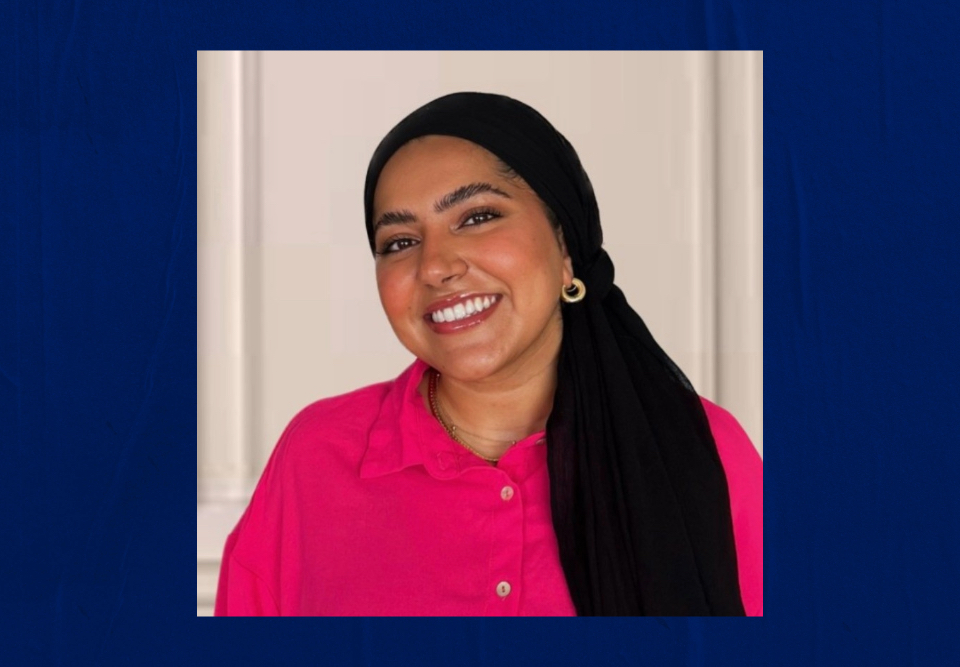Describe your current work setting and role.
Last year, I served as a full-time bilingual school psychologist at Alverta B. Gray Schultz Middle School in Hempstead, NY. My primary tasks included running annual review and reevaluation meetings, conducting mandated counseling sessions, managing crises, and consulting with staff and families. I particularly enjoyed my drop-in counseling sessions and lunch groups. This was my first year working with middle school students, and I deeply enjoyed the lighthearted, fun energy the students brought to the school environment.
This year, I am transitioning to a new role as a travel school psychologist with Pioneer Healthcare, serving the East Side Union High School District in San Jose, CA. My role focuses on group and individual counseling sessions.
I've always loved traveling and visiting new locations, so I jumped at the opportunity to live in a new place while being supported via housing stipends. Not only am I excited to explore Northern California, but I'm also excited to hold a counseling-only role, serving BIPOC teens, an area of particular interest to me.
What is your area of expertise? How have you developed skills in this area?
I believe we have many areas of expertise as school psychologists; however, I've found that I seek out skill development in the areas that I'm most passionate about.
I have a strong testing background through my early training at the Dean Hope Center as a graduate student at Teachers College (TC), Columbia University. I built my strengths in bilingual testing through my internship with the New York City Department of Education, where we served many Spanish-speaking students and families.
Although I find psychoeducational testing extremely fascinating, my interests lie more heavily in counseling and crisis management. While working in Hempstead, I found myself primarily interested in school-wide positive behavior interventions and support (PBIS) and counseling. Through consulting with my colleagues and peers from TC, I further developed my counseling skills to focus on culturally informed and strengths-based approaches. This year, I'm particularly interested in using my counseling skills to focus on goals through a strengths-based and racially, ethnically, and religiously informed perspective.
As a school psychologist, you juggle many roles. How do you effectively manage all of them?
Last year, I often found myself completing the many Tier 3 (individual student) tasks on my plate rather than focusing on broader Tier 1 or 2 support. Now, when managing my tasks, I consider where I am allocating my resources (time, energy, and emotional labor) to identify if I can better serve the community by widening my lens and allocating the same resources to the group at large rather than to individual students.
An essential shift for me, especially working with communities affected by systemic injustice and environmental stressors, was to increase community support as well as school-wide support. When we devoted energy and resources to mediating the stressors impacting the entire school and community, we supported more students and decreased the heavy need for Tier 3 support.
Shifting school-wide intervention practices is a process, as it requires a mindset shift on the part of every team member. To start this shift, my school began by better understanding the community organizations we had access to and communicating our goal (to increase school-wide support) to all the organizations that partnered with us. We also consulted with a PBIS specialist who completed a walk-through of our school and identified steps to increase both school-wide PBIS practices and training for teachers on Tier 1 interventions.
Why is membership in NASP important to you?
As we acknowledge ways in which our old, biased practices further marginalize already underserved groups, I find myself turning to NASP resources surrounding evidence-based, culturally informed practices and resources that will support all students. Through my NASP membership, I've also connected with clinicians who are dedicated to antioppressive practices and serving BIPOC and minoritized communities. With these connections, I've had extremely fruitful discussions and peer consultations that have shaped the ways in which I support my school community.
Communique_Yomna Bendary
National Association of School Psychologists | November 2023, Volume 52, Number 3
4340 East-West Highway, Suite 402, Bethesda, MD 20814
P: 301-657-0270 | Toll Free: 866-331-NASP | F: 301-657-0275
